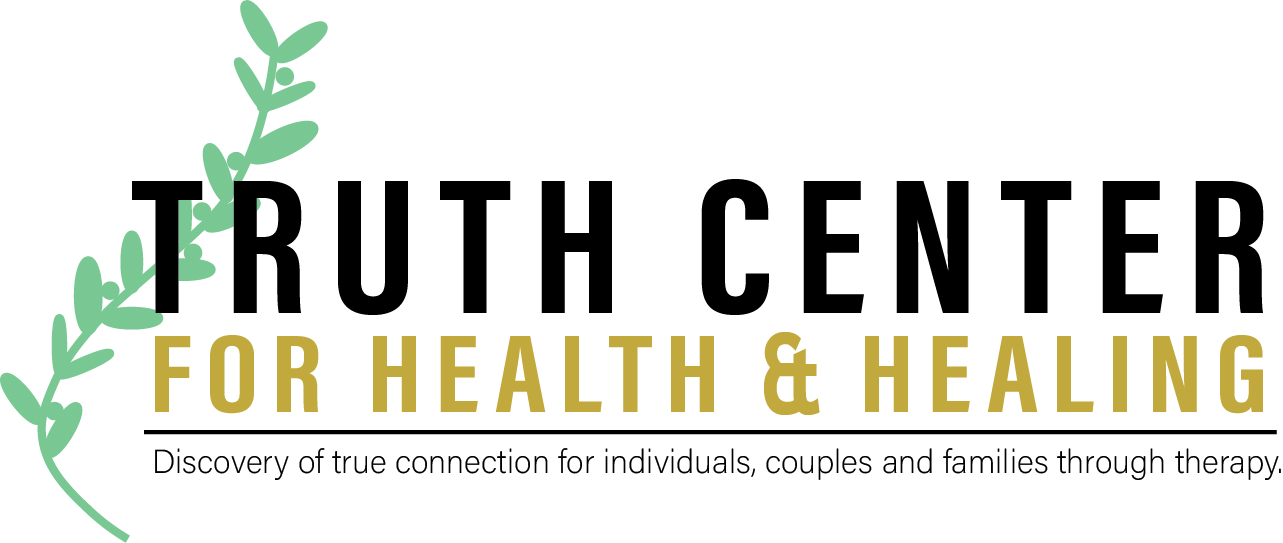EMDR Therapy in Philadelphia, PA

At the Truth Center for Health & Healing, we specialize in providing tailored EMDR therapy in Philadelphia that addresses the unique challenges faced by each individual. Explore the issues that EMDR therapy can address, learn how you can support yourself during your therapy journey, and discover the benefits of our expert counseling services.
Eye Movement Desensitization and Reprocessing (EMDR) is a psychotherapy technique designed to aid individuals grappling with traumatic events, anxiety, depression, or phobias. Through controlled eye movements, it facilitates the processing of distressing memories, allowing patients to reframe negative experiences and alleviate psychological distress. EMDR offers a structured approach to address and overcome psychological difficulties, empowering individuals to achieve emotional healing and resilience.
Specializations
- Depression & Anxiety
- Trauma & PTSD
- Relationship Issues
- Self-esteem & Self-worth
- Grief & Loss
- Stress and Burnout
EMDR Therapy in Philadelphia, PA
What is EMDR?
EMDR, developed by psychologist Francine Shapiro in the 1980s, utilizes bilateral stimulation like eye movements or tapping to reprocess traumatic memories. Trauma disrupts normal memory processing, leading to vivid, overwhelming memories stored fragmentedly. EMDR aims to “unstick” these memories in the brain and body, reducing symptoms of anxiety, depression, and PTSD. It targets negative beliefs associated with memories, facilitating emotional healing with a domino effect.
At Truth Center for Health & Healing, we view therapy as a journey of self-discovery and authenticity, not merely symptom management. Our EMDR therapy approach prioritizes establishing a secure and caring environment, delving into the underlying causes, and fostering empowerment for you to take charge of your life’s direction. We are dedicated to guiding you towards uncovering your truth and embracing your genuine self.
EMDR offers potent therapy for trauma and related emotional issues, yet suitability varies. Effective for anxiety, depression, and PTSD, it may not suit all. Those with seizure history or neurological conditions should be cautious. A thorough assessment by your mental health therapist in Philadelphia ensures suitability for EMDR, prioritizing safety and efficacy in treatment selection.

How does EMDR Work?
EMDR comprises eight treatment phases aimed at integrating traumatic memories into the individual’s normal memory network to lessen their impact upon recall. These phases include history-taking and planning, coping skill development, memory assessment, desensitization with bilateral stimulation, belief restructuring, body scan, closure, and progress evaluation. Tailored to each person’s needs, EMDR fosters healing by addressing negative beliefs associated with memories and promoting relaxation.

What can I expect from EMDR therapy?
EMDR sessions typically last 60-90 minutes weekly, with intensity options available. After an initial assessment, sessions focus on specific traumatic memories or emotional issues. Through bilateral stimulation like eye movements, clients progress through eight treatment phases, reducing emotional intensity and developing adaptive beliefs. While initially uncomfortable, most find the process easier with time, aided by therapist-guided belief challenge and replacement. For more great results and assistance restoring relationships, seek our couples counseling on the Main Line.
Benefits of EMDR?
EMDR’s precise mechanisms are under study, yet theories propose it integrates trauma into one’s life narrative, fostering adaptive memory responses. Highly effective in treating trauma, anxiety, depression, and phobias, EMDR also addresses performance anxiety, addiction, and negative self-beliefs.
Flexible Scheduling and Session Options: In-Person and Virtual
Trauma may trigger fight, flight, freeze, or fawn responses, hindering personal growth. We prioritize accessibility to EMDR services. Whether you seek in-person sessions at our offices or prefer virtual sessions via a secure portal, we accommodate your needs. Our aim is to provide a safe space for trauma recovery, minimizing barriers to your healing journey.
What Makes EMDR Different From Other Forms of Therapy?
Effective therapy uses a variety of different tools to help you navigate anxiety, depression, trauma, and other mental health conditions. From mindfulness practices to more in-depth individual therapy in Philadelphia, PA, our team of mental health professionals is committed to finding the best course of treatment to help you regain control of your life. One of the tools we often use is Eye Movement Desensitization and Reprocessing, or EMDR, which is a unique and more targeted approach to processing and resolving traumatic memories.
Your brain processes tons of information every second of the day, and sometimes traumatic experiences can override your system. Our EMDR therapy in Philadelphia uses bilateral stimulation (side-to-side eye movements, taps, or sounds) to mimic the natural processes that occur during REM sleep. This helps your brain to make new neural connections and reprocess distressing memories. Through reprocesses, EMDR can reduce the emotional charge attached to painful memories, giving you the freedom of recovery to move forward with greater resilience and strength.
How Long Does EMDR Therapy Typically Last?
One of the most common questions we receive about EMDR therapy is, “How long will it take?” The answer? It depends on the person. Some of our clients in Philadelphia notice a difference after just a few sessions, while others may need more time to reprocess their trauma.
Typically, a full course of EMDR therapy at our practice in Philadelphia can range anywhere from 6 to 12 sessions. During our sessions, we’ll work together to identify the specific memories or experiences that are causing you distress and target them using EMDR techniques.
EMDR therapy can also address present-day triggers and future challenges. So even after your initial course of therapy, you might find it beneficial to keep up with sessions to help you navigate new challenges. For more information about EMDR therapy in Philadelphia, trauma therapy in Media, PA, or other ways we can support you along your healing journey, reach out to our compassionate mental health professionals!




